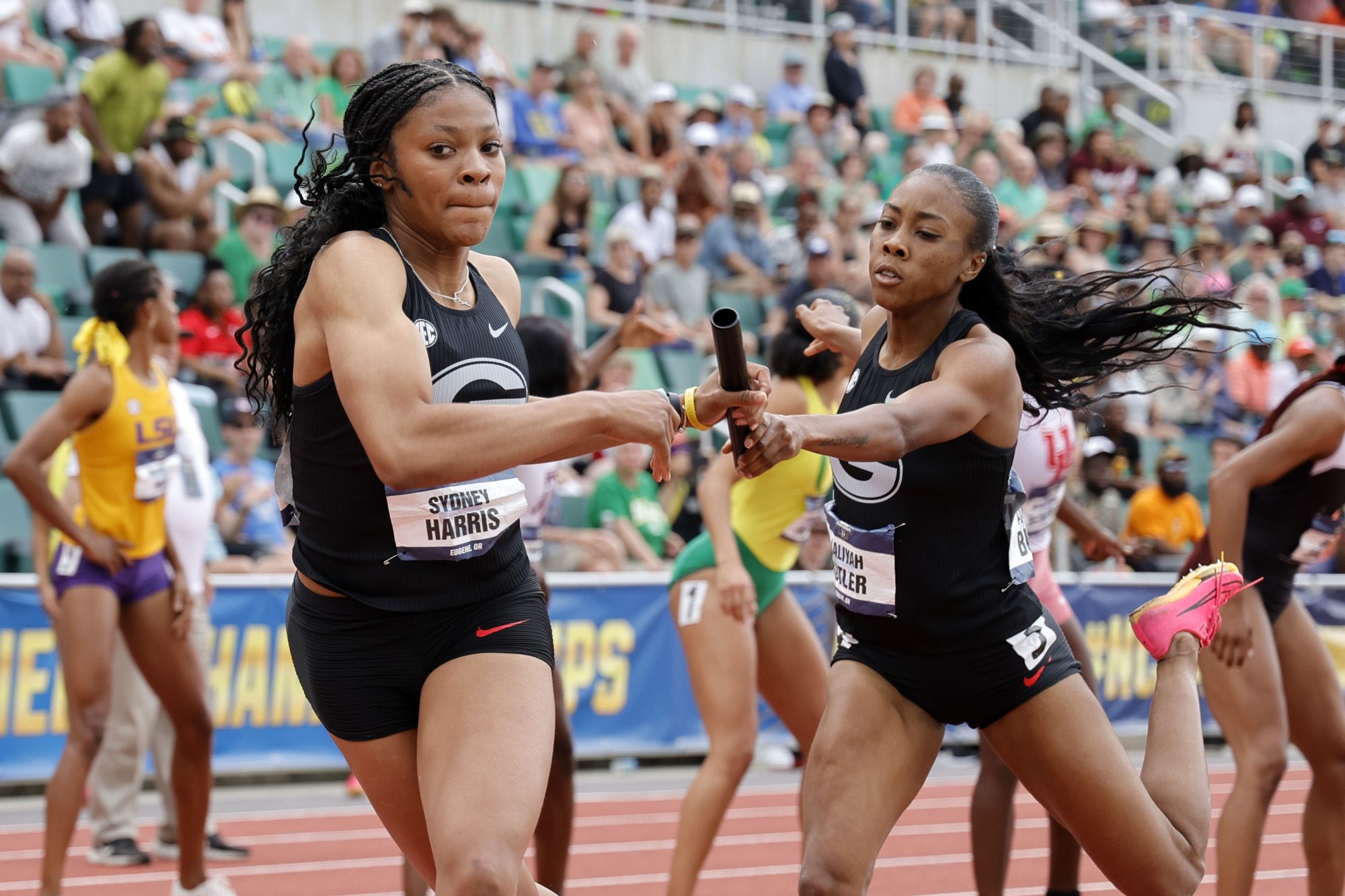During a House Judiciary Committee hearing Tuesday, two power conference coaches expressed major concerns about the future health of Division I Olympic sports. But throughout the two-hour hearing, neither Louisville swimming and diving coach Arthur Albiero nor Georgia track and field coach Caryl Smith Gilbert brought up one of the biggest concerns in the industry: roster limits imposed by the House v. NCAA settlement.
The House v. NCAA settlement lifts any scholarship restrictions on D-I athletic departments, but allows the NCAA to impose roster restrictions in their place. Already, athletes nationwide have begun to report their offers to attend certain schools either on a partial scholarship or as a walk-on have been revoked, according to media reports and settlement objections—and coaches have sounded the alarm as well. The settlement also requires the NCAA and power conferences to pay $2.8 billion in back damages to athletes who weren’t able to profit from NIL (name, image, and likeness) before 2021, and allows schools to share up to $20.5 million in revenue with each of their schools every year.
But those concerns weren’t raised at the hearing Tuesday morning. Smith Gilbert and Albiero recycled NCAA talking points, suggesting that if college athletes were to become employees, there wouldn’t be enough money to go around to fund Olympic sports programs, thus incentivizing schools to cut them. The coaches asked Congress to pass legislation to provide antitrust protections to the NCAA, which would classify athletes as amateurs, rather than employees.
Their testimony is likely part of the NCAA’s broader strategy.
The NCAA’s publicly stated goal has been to secure an antitrust exemption that, among other things, prohibits athletes from being considered employees. (If athletes are classified as employees, schools would be required to provide certain benefits and protections afforded to all U.S. workers in addition to wages.)
For that goal, it needs the House settlement to be approved. The NCAA believes Congress sees the settlement as a show of good faith that the NCAA has gone as far as it can to address its own issues. If it receives approval, Congress could codify the settlement and provide an exemption through federal legislation.
Therefore, it’s in the NCAA’s best interest to have their own witnesses—the two coaches who testified—not bring up problematic consequences of the settlement, like roster limitations. Rather, the NCAA’s message to lawmakers focuses on painting a bleak picture of how college sports would look without an antitrust exemption (and with athletes as employees).
And no doubt, as with many Congressional hearings involving different special interests and stakeholders, lobbyists make sure those testifying will adhere to their clients’ positions.
In a strange twist, in the middle of the hearing, a letter was posted to social media written by D-I track coaches from across the country raising concerns about the roster limitation policy. The letter also mentioned that the revenue-sharing aspect of the House settlement would deplete funds that would normally go to their sport. Smith Gilbert was one of the 18 coaches listed as an author of the letter. (The U.S. Track and Field and Cross Country Coaches Association did not author or facilitate distribution of the letter, a source told FOS.)
Of the roster limits, the letter said: “New rules limit cross-country rosters to 17 athletes and track and field to 45, with the option to fully or partially fund each. While some programs may thrive, others could be forced to make difficult cuts, diminishing opportunities for development and recruitment. This may also encourage programs to recruit only fully developed athletes internationally, potentially reducing access for U.S. athletes.”
USTFCCCA, for its part, has opted not to use its lobbying resources to protest roster limits on Capitol Hill given that the House settlement will be either approved or denied by a federal judge, the source said. Instead, the group is advocating for legislation that will maintain sport scholarship minimums and funding levels. It’s also pushing against the employee model—though it wasn’t involved in prepping coaches for Tuesday’s hearing.





![[Subscription Customers Only] Jun 15, 2025; Seattle, Washington, USA; Botafogo owner John Textor inside the stadium before the match during a group stage match of the 2025 FIFA Club World Cup at Lumen Field.](https://frontofficesports.com/wp-content/uploads/2026/02/USATSI_26465842_168416386_lowres-scaled.jpg?quality=100&w=1024)
![[Subscription Customers Only] Jul 13, 2025; East Rutherford, New Jersey, USA; Chelsea FC midfielder Cole Palmer (10) celebrates winning the final of the 2025 FIFA Club World Cup at MetLife Stadium](https://frontofficesports.com/wp-content/uploads/2026/02/USATSI_26636703-scaled-e1770932227605.jpg?quality=100&w=1024)










